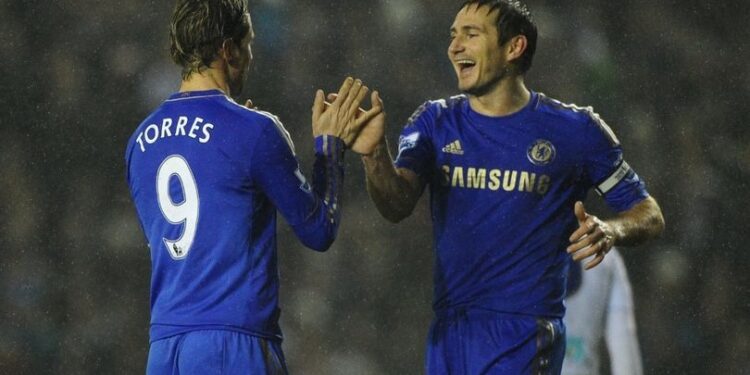Former Premier League ref reveals how Chelsea tried to wind him up – and how Fernando Torres once succeeded
A former Premier League referee has opened up about his experiences on the field – but agreed only to do so under the cover of anonymity.
The ex-official has told of abuse directed at both himself and his family, arguing that referees need better protection.
This account, told to Betfair as part of their ‘Back The Whistleblowers’ campaign and sent to MirrorFootball, documents the pressures facing referees, the experience of being surrounded by players and what it’s like to be wound up by Fernando Torres.
Below is the full account:
Part and parcel of being a Premier League referee is receiving the ‘abuse’ from players, managers and fans. We understand that sometimes the adrenaline kicks in, there is huge emotion around some games and the atmosphere can take over so it’s understandable if a referee gets a decision wrong that people are angry. However, some of the abuse referees receive is simply unacceptable.
When the whole stadium is singing ‘you don’t know what you’re doing’, most of the time you are concentrating on the game so you don’t take much notice of your surroundings. Sometimes though, when the ball is out of play or there is an injury, you tend to hear the taunts and songs which can be tough. My way of reacting to the negativity on the pitch, especially with the crowd, was to smile and maybe even give a thumbs up.
I remember refereeing a Liverpool versus Manchester United game where I sent off one of the Liverpool players and I received an unusually big backlash as it was such a big game, full of emotion. The worst part of it was that my family received quite a lot of abuse on social media too and that was below the belt. They didn’t deserve that; they had nothing to do with my decisions on the pitch. I tried not to let it get to me, park it to one side and move on but that was hard for us all. Unfortunately these days it’s seen as acceptable for the abuse to go with the territory and that’s something I can’t get my head around. We should be prepared to protect referees, which can start with players and managers on and off the pitch.
Some teams were harder to deal with than others. When I look back I would say Chelsea were one of the main teams that if things didn’t go their way, they’d surround the referee every time. They’d try to get into your head and make you change your mind. I remember sending off John Terry in a game versus Manchester City and he knocked on my dressing room door after the game. In the end we had a pleasant discussion and he understood why I had sent him off but he still didn’t agree with it. That’s one of the things about being a referee, people can understand your decision but not everyone will agree.
That’s where mental strength is a huge attribute to have as a referee. Sometimes when you’ve made a decision and you have five players surrounding you, shouting at you, as well as having the crowd in the background chanting ‘you don’t know what you’re doing’, it’s really hard to keep positive, have confidence in yourself and your decision making. If you’re not confident and you have players surrounding you, they will pick up on that straight away, and so will the crowd.
Danny Mills was a player who wouldn’t stop moaning on the pitch. He was a great guy off the pitch, but wow did he know how to moan. In situations like that I would discuss with the captain rather than keep pulling the player up and hope they would get through to him. I had a good relationship with Steven Gerrard so I’d say to him ‘Steven sort him out, if you don’t sort him out I will’ and then he’d give the heads up to the player. That’s why it was important to have a good relationship with the players, especially the captain as it would allow me to take control of a game without creating a bigger deal out of a situation.
On one occasion, Fernando Torres got the better of me, he got into my head, and that was something that very rarely happened. He said something to me which I didn’t like, so I ended up chasing him along the pitch, something happened elsewhere on the pitch and I missed that so I blew the whistle. Using my relationship with Frank Lampard I said to him, ‘Frank he is a pain in the backside’ and Frank said ‘tell me about it, we have him in training every day and he is a pain!’ so that sometimes makes you feel better when it’s not just you that has those feelings.
Sometimes with those decisions, you want to defend yourself after a game. You want to put your point across, but its protocol for all referees that you do not speak to media; you aren’t even allowed to be on social media, let alone discuss with the press. That’s the time where you would use your referee coach to help you deal with that side of the job. Many would like to speak to the media and explain their decisions, but where would you draw the line? The best way is to not read the media, keep your head down and focus on the next game. At the end of the day that’s the most important thing, your next performance.
Mirror.com
Former Premier League Referee reveals all about his time on the pitch
ADVERTISEMENT






